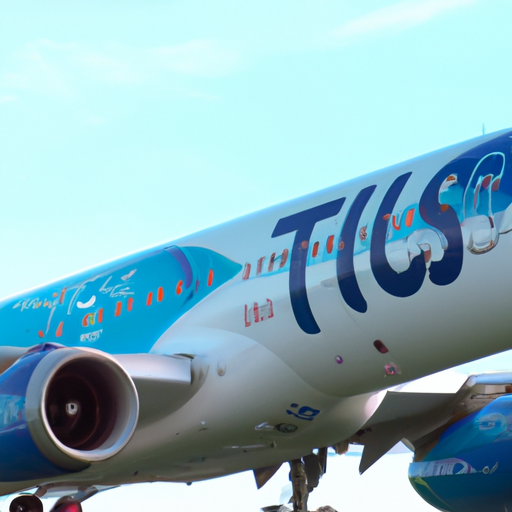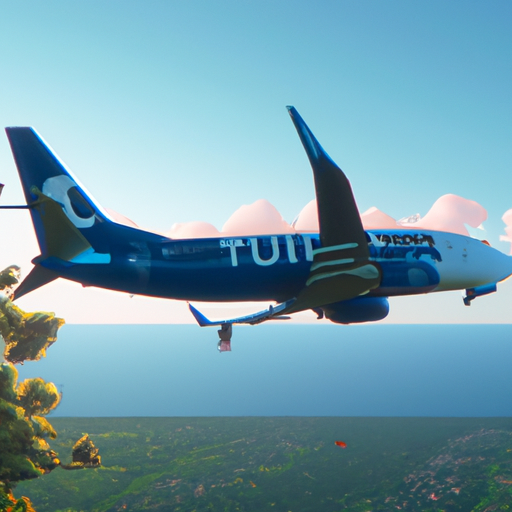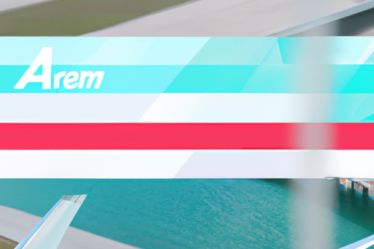
Benefits of TUI Group’s implementation of SITA OptiClimb
TUI Group, one of the world’s leading tourism companies, has recently implemented SITA OptiClimb across all five of its airlines. This move is set to bring a range of benefits to the group, enhancing both operational efficiency and environmental sustainability.
One of the key benefits of implementing SITA OptiClimb is the reduction in fuel consumption. By optimizing climb profiles, the software enables airlines to minimize the amount of fuel used during ascent. This not only leads to significant cost savings for TUI Group but also helps to reduce the environmental impact of its operations. With the aviation industry under increasing pressure to reduce its carbon footprint, this implementation is a step in the right direction for TUI Group.
In addition to fuel savings, SITA OptiClimb also improves flight efficiency. By analyzing a range of factors, such as aircraft weight, weather conditions, and air traffic control constraints, the software determines the most efficient climb profile for each flight. This optimization ensures that TUI Group’s aircraft reach their cruising altitude in the shortest possible time, reducing overall flight duration. This not only improves the passenger experience but also allows the airlines to operate more flights within a given timeframe, increasing capacity and revenue potential.
Furthermore, the implementation of SITA OptiClimb enhances safety. The software provides pilots with real-time information and recommendations, allowing them to make informed decisions during the climb phase. By optimizing climb profiles, the software helps to reduce the workload on pilots, enabling them to focus on other critical aspects of the flight. This ultimately enhances situational awareness and reduces the risk of human error, contributing to safer operations for TUI Group.
Another benefit of implementing SITA OptiClimb is the improved predictability of flight schedules. By optimizing climb profiles, the software helps to minimize delays caused by congestion or adverse weather conditions. This allows TUI Group to provide a more reliable service to its customers, reducing the likelihood of missed connections or disrupted travel plans. With the implementation of SITA OptiClimb, TUI Group can enhance its reputation for punctuality and customer satisfaction.
Moreover, the implementation of SITA OptiClimb demonstrates TUI Group’s commitment to innovation and technological advancement. By embracing cutting-edge solutions, the group is positioning itself as a leader in the industry, setting new standards for operational efficiency and environmental sustainability. This not only benefits TUI Group but also inspires other airlines to follow suit, driving positive change across the aviation sector.
In conclusion, the implementation of SITA OptiClimb across all five airlines of TUI Group brings a range of benefits. From fuel savings and improved flight efficiency to enhanced safety and predictability, this move demonstrates TUI Group’s commitment to operational excellence and environmental sustainability. By embracing innovative solutions, TUI Group is setting new standards for the industry and inspiring others to follow suit. With SITA OptiClimb, TUI Group is well-positioned to continue its success in the ever-evolving aviation sector.
How SITA OptiClimb improves fuel efficiency for TUI Group

TUI Group, one of the world’s leading tourism companies, has recently implemented SITA OptiClimb across all five of its airlines. This innovative technology is set to revolutionize the way TUI Group manages fuel efficiency, ultimately reducing costs and minimizing its environmental impact.
So, what exactly is SITA OptiClimb? It is a software solution that uses real-time data to optimize climb profiles for aircraft. By analyzing factors such as weather conditions, aircraft weight, and air traffic control constraints, OptiClimb calculates the most efficient climb profile for each flight. This means that pilots can make informed decisions about when to increase altitude and at what rate, ensuring that fuel is used as efficiently as possible.
The implementation of SITA OptiClimb is a significant step forward for TUI Group in its commitment to sustainability. By improving fuel efficiency, the company can reduce its carbon emissions and contribute to the global effort to combat climate change. This is particularly important in the aviation industry, which is responsible for a significant portion of greenhouse gas emissions.
But how exactly does SITA OptiClimb improve fuel efficiency for TUI Group? Firstly, it allows pilots to take advantage of favorable weather conditions. By analyzing real-time weather data, OptiClimb can identify areas of strong tailwinds or areas with less turbulence. Pilots can then adjust their climb profiles accordingly, taking advantage of these conditions to reduce fuel consumption.
Secondly, OptiClimb takes into account the weight of the aircraft. As fuel is burned during the flight, the weight of the aircraft decreases. OptiClimb continuously calculates the optimal climb profile based on the changing weight, ensuring that the aircraft is always climbing at the most fuel-efficient rate.
Furthermore, OptiClimb considers air traffic control constraints. By analyzing the current air traffic situation, the software can suggest alternative climb profiles that avoid congested airspace or minimize the need for level-offs. This not only saves fuel but also reduces the workload for air traffic controllers, contributing to a more efficient and sustainable aviation system.
The benefits of implementing SITA OptiClimb are already evident for TUI Group. Initial trials have shown fuel savings of up to 5% per flight, which can translate into significant cost savings for the company. Additionally, the reduced fuel consumption means fewer carbon emissions, aligning TUI Group with its sustainability goals.
The successful implementation of SITA OptiClimb across all five airlines within TUI Group is a testament to the company’s commitment to innovation and sustainability. By harnessing the power of real-time data and advanced algorithms, TUI Group is leading the way in improving fuel efficiency in the aviation industry.
In conclusion, SITA OptiClimb is set to revolutionize the way TUI Group manages fuel efficiency. By analyzing real-time data and optimizing climb profiles, this innovative technology allows pilots to make informed decisions that reduce fuel consumption and carbon emissions. With initial trials already showing significant fuel savings, TUI Group is well on its way to achieving its sustainability goals and contributing to a more efficient and sustainable aviation industry.
The impact of SITA OptiClimb on TUI Group’s environmental sustainability efforts
TUI Group, one of the world’s leading tourism companies, has recently implemented SITA OptiClimb across all five of its airlines. This move is a significant step forward in TUI Group’s ongoing efforts to improve its environmental sustainability. By utilizing SITA OptiClimb, TUI Group aims to reduce fuel consumption and carbon emissions, ultimately contributing to a greener and more sustainable future.
SITA OptiClimb is a state-of-the-art technology that optimizes aircraft climb profiles, allowing for more efficient fuel usage during takeoff. By analyzing various factors such as weather conditions, aircraft weight, and air traffic control constraints, OptiClimb calculates the most fuel-efficient climb profile for each flight. This technology enables pilots to make informed decisions that result in reduced fuel burn and lower carbon emissions.
The implementation of SITA OptiClimb across all five of TUI Group’s airlines is a testament to the company’s commitment to environmental sustainability. By adopting this innovative technology, TUI Group is taking proactive steps to minimize its carbon footprint and contribute to global efforts to combat climate change. This move aligns with TUI Group’s broader sustainability strategy, which includes initiatives such as reducing single-use plastics, promoting responsible tourism practices, and supporting local communities.
The impact of SITA OptiClimb on TUI Group’s environmental sustainability efforts is expected to be significant. By optimizing climb profiles, TUI Group aims to reduce fuel consumption by up to 5% per flight. This reduction in fuel burn translates to a substantial decrease in carbon emissions, helping TUI Group achieve its goal of becoming a more environmentally responsible company.
Furthermore, the implementation of SITA OptiClimb also brings economic benefits to TUI Group. By reducing fuel consumption, the company can lower its operating costs, resulting in improved profitability. This cost-saving measure allows TUI Group to invest in other sustainability initiatives and further enhance its commitment to environmental stewardship.
In addition to the environmental and economic benefits, SITA OptiClimb also enhances the overall passenger experience. By optimizing climb profiles, the technology reduces the duration of flights, resulting in shorter travel times for passengers. This improvement in efficiency not only benefits the environment but also enhances customer satisfaction, making TUI Group an even more attractive choice for travelers.
TUI Group’s implementation of SITA OptiClimb is a significant milestone in the company’s journey towards a more sustainable future. By embracing innovative technologies and adopting best practices, TUI Group is setting an example for the entire tourism industry. The company’s commitment to environmental sustainability is commendable, and it serves as an inspiration for other organizations to follow suit.
In conclusion, TUI Group’s implementation of SITA OptiClimb across all five of its airlines is a game-changer in the company’s environmental sustainability efforts. By optimizing climb profiles and reducing fuel consumption, TUI Group is making significant strides towards a greener and more sustainable future. This move not only benefits the environment but also brings economic advantages and enhances the overall passenger experience. TUI Group’s commitment to environmental stewardship is commendable, and it sets a positive example for the entire tourism industry. With initiatives like SITA OptiClimb, TUI Group is paving the way for a more sustainable and responsible approach to travel.

